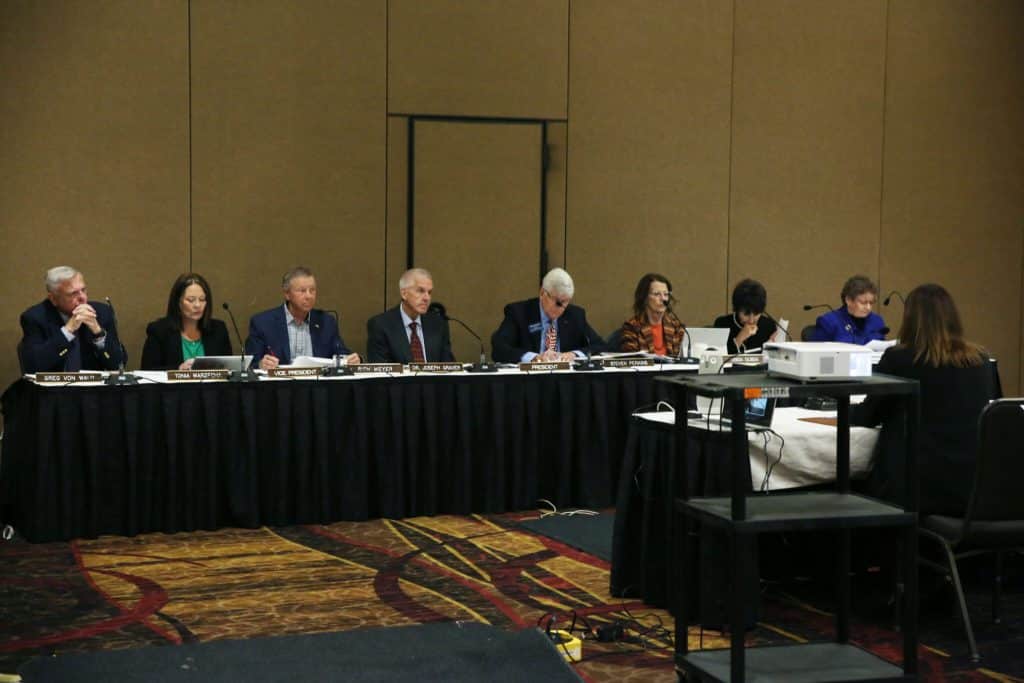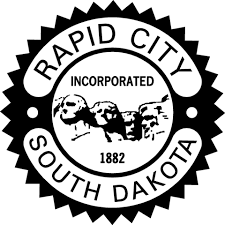SIOUX FALLS — Calls to retain South Dakota’s current math standards continued at the state Board of Education Standards meeting Monday, as opponents flagged a proposed rewrite of the standards as overly simplistic.
The state Department of Education received 44 comments on the new standards as of Friday, most of which were critical of some or all of the rewritten standards. Department officials presented the board with a revised proposal during the Monday meeting at the Sioux Falls Ramkota hotel, addressing some concerns in the submitted feedback.
The proposed standards were reviewed by a 20-person revision committee earlier this year after being developed by a statewide advisory group. South Dakota Secretary of Education Joe Graves said the proposal leaves core concepts largely unchanged but describes them more clearly and concisely.
Graves told board members that the current standards are “incomprehensible” to some — especially parents and elementary school teachers. It’s important for parents and primary educators to understand the standards so they can help support students and build a foundation in mathematics, he added.
All of the opponents who spoke against the standards on Monday were higher level math educators with specializations in the field.
Sharon Vestal, a math professor at South Dakota State University and president of the South Dakota Council of Teachers of Mathematics, said she was concerned the simplification removes clear language from the current standards, which could lead to new educators not teaching material students should know because it’s not explicitly laid out.
Stephanie Higdon is with the Center for the Advancement of Math and Science Education at Black Hills State University. She worked with the state Department of Education when it surveyed school districts with higher math test scores prior to Graves’ appointment as department secretary. Those “bright spot schools,” she said, taught more closely to the current math standards.
“The current math standards are not broken when teachers believe in their students, believe that they can meet these standards and receive the support to do so,” Higdon said.
Gail Jacobsma, a math teacher at Arlington, said the current standards aren’t perfect, but “are quite good.”
“For schools like mine, which have enviable math scores, they are vital,” Jacobsma said. “They provide a detailed, coherent map for us to follow and help ensure that the instructional materials we purchase are well aligned.”
The proposal pulls from other states’ standards across the nation, and from the Archimedes standards, which the conservative-leaning National Association of Scholars says are “depoliticized”: “No ideologies permeate the problems and tasks, no ethnomathematics guides the pedagogies, and no tangential applications have been inserted that politicize math.” The Archimedes standards were written by an assistant professor at Hillsdale College in Michigan, which was also involved in South Dakota’s revised social studies standards, accepted in 2023 after a lengthy and controversial process and implemented this school year.
Graves added that South Dakota students “lack significant progress” on math testing since the COVID-19 pandemic, which he attributed to the current standards. About 44% of students were proficient or above on the state test annually over the last five years, he said.
Department officials presented South Dakota’s latest report card to the board at the Monday meeting, showing that math proficiency remained at 44%. English and reading increased by one percentage point to 52% proficiency.
Health standards also discussed; next meeting is in February
The board is also considering an update to South Dakota’s health education standards.
Two South Dakota advocacy groups requested board members amend the standards: the South Dakota Chapter of the Alzheimer’s Association wants to include caregiver education for students as Alzheimer’s diagnoses increase in the state, and Call to Freedom wants to include abuse and human trafficking education for students.
Graves cautioned board members against adding more topics to the standards and encouraged organizations to work with local school districts to arrange instruction.
Some board members disagreed with Graves, suggesting the state should recommend additional health-related topics for schools.
The board will meet again on Feb. 23 in Pierre to take more public comment on the proposed math and health standards.





